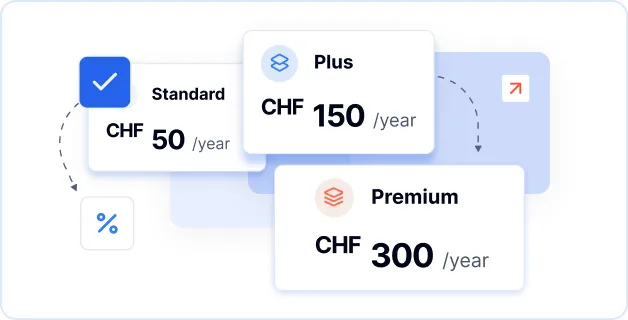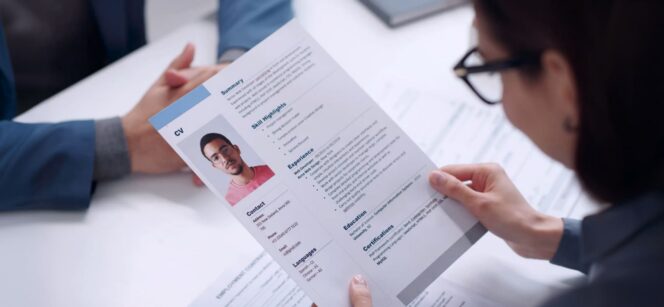What documents should I keep for my accountant?
Meeting with your accountant can be an intimidating experience for many business owners.

Many of them ask, “What documents should I give to my accountant?” and often find themselves in a rush to gather everything at the last minute. Consider your accountant as a skilled chef and your financial documents as the ingredients. If you present the chef with a chaotic assortment of random items, they will have to dedicate considerable time to sorting, cleaning, and preparing them before they can even begin to cook. This process can be lengthy, costly, and stressful. On the other hand, if you supply them with well-organised, high-quality ingredients, they can quickly create a masterpiece—in this scenario, an accurate and efficient financial report or tax return. Knowing what your accountant requires to file your taxes is the first step toward establishing a seamless and productive partnership. This guide will act as your definitive checklist, outlining precisely what your accountant needs for a tax return and how to manage your accounting documents effectively. By the conclusion, you will possess a clear list of items to bring to your CPA for tax purposes and feel assured about the process. Being prepared with all the necessary documents to compile for taxes will not only facilitate your accountant’s work but will also save you time, money, and potential stress.
Why it’s important to keep records for your accountant
Keeping meticulous records is one of the most fundamental disciplines of running a successful business, yet its importance is often underestimated. Your relationship with your accountant for taxes is a partnership, and providing them with complete and organised information is your side of the bargain. Good record-keeping is the backbone of sound accounting for a tax business and is crucial for several reasons.
First, it ensures accuracy. When your accountant prepares your tax return, they rely entirely on the information you provide. Missing receipts or incomplete income records can lead to an inaccurate accounting tax return, which could mean you either overpay on your taxes or, worse, underpay and risk fines and penalties from the Swiss authorities.
Second, it improves efficiency. The question “do accountants file taxes?” is common, and the answer is yes, but their efficiency depends on you. A well-organised set of documents allows your accountant to do taxes in a fraction of the time it would take if they had to sift through a year’s worth of unorganised paperwork. This directly translates into lower accounting fees for you.
Finally, it provides legal protection. In the event of a tax audit, the burden of proof is on you to substantiate every item of income and every claimed expense. Well-kept records are your evidence, your defence, and your peace of mind, proving that your tax filings are honest and accurate.
What paperwork do you need to get your Swiss business ready for tax season?
When it’s time to prepare your annual tax return, having your financial house in order can make all the difference. Many small business owners feel overwhelmed simply because they’re unsure what to gather. The truth is, your accountant can only work effectively if they have a clear view of your business’s activity over the year—so your role in collecting the right documents is vital.
Whether you’re running a solo business or managing a team, creating a proper file of financial records not only reduces stress but also helps you avoid costly mistakes or overlooked deductions. Below is a detailed breakdown of what you’ll need, regardless of whether you work with a tax consultant, a business accountant, or handle initial preparation yourself.
Income and earnings documentation
At the heart of any tax return is your income—what your business earned over the year. This is the baseline from which all other calculations are made.
Here’s what to collect:
- All invoices issued to clients or customers
- Sales reports from online platforms (e.g. Shopify, WooCommerce)
- Payment confirmations from third-party providers like Stripe, SumUp, or PayPal
- Statements from your point-of-sale systems if you run a physical shop
- A complete income summary or export from your accounting software, showing each source of business revenue
Without these documents, it’s difficult to confirm the accuracy of your reported turnover, which is a key figure on your tax return.
Business expense proof
Every deduction starts with a receipt. In Switzerland, claiming an expense without evidence simply isn’t allowed. Even small costs—like a train ticket to meet a client—need supporting proof.
You should keep:
- Purchase receipts for everything from stationery to subscriptions
- Supplier and contractor invoices
- Monthly utility statements (internet, phone, rent, energy)
- Meal and entertainment receipts if related to business activity
- Travel documents (flight itineraries, accommodation invoices, toll receipts)
- Mileage logs if you use your personal car for business purposes
- It’s a good habit to label or categorise these items as they come in, so nothing is lost when tax time arrives.
- Payroll and employment-related records
If you have employees or pay yourself a salary through your company, payroll documents are essential. Swiss regulations around social security and pension contributions are strict, and these must be correctly recorded.
What to prepare:
- Payslips for all employees
- Social contribution reports (AHV/AVS, ALV, BVG, etc.)
- Employee contracts and tracked working hours
- Evidence of holiday pay, bonuses, or other benefits provided
- Pension plan documents, if contributions were made
- These records will help your accountant correctly calculate payroll tax liabilities and ensure compliance with local employment laws.
- Financial account statements
Bank and credit card statements play a vital role in cross-checking everything else. They show the actual flow of money in and out of your business accounts, helping to verify that reported income and expenses match reality.
Be ready to share:
- Monthly bank statements for all business accounts
- Credit card statements used for business expenses
- Any business PayPal or virtual card account statements
- Loan payment histories if applicable
Providing a full year of statements ensures no transactions are missed and adds transparency to the entire accounting process.
What else does your accountant need for your tax return?
Beyond the standard receipts and statements, your accountant may need some extra context to fully understand your year in business. This is especially true if your business has evolved or undergone changes.
Here’s what to include in your tax preparation package:
- A summary of major changes (new services, hiring, downsizing, rebranding)
- Records of large asset purchases or sales (like vehicles, equipment, or software licences)
- Loan agreements and interest payment summaries
- A copy of last year’s tax return, especially if you’re working with a new accountant
- Insurance documents for liability, property, or health plans
- Investment income or dividend statements, if your business holds shares or has investments
- Providing this broader picture helps your tax preparer give you accurate, strategic advice—not just complete the forms.
- Specific records based on your business type
Your legal structure also affects what documents are required. Here’s how the expectations differ slightly depending on whether you’re self-employed or operating through a legal entity:
Sole traders and freelancers
If you’re self-employed, it’s essential to clearly separate personal and business spending. If you don’t have a dedicated business bank account, you’ll need to highlight or annotate relevant entries on your personal statements.
Documents to focus on:
- Business-related sections of your personal bank statements
- A detailed log of income from different clients or platforms
- Proof of personal investments in the business (equipment purchases, marketing spend, etc.)
- Tax authorities are particularly attentive to self-employed deductions, so make sure every expense is traceable.
- GmbH and AG companies
For limited liability companies and corporations, the documentation needs are more formal and extensive. Since the business is a legal entity separate from the owners, more transparency is expected.
Your accountant will ask for:
- Articles of association and any amendments made during the year
- Commercial register extracts
- Board meeting minutes (especially if decisions around dividends, salaries, or loans were made)
- Capital increase or reduction documents
- Shareholder agreements or records of share transfers
- Statements related to shareholder loans or profit distributions
- If your company issued dividends, made capital contributions, or took out commercial financing, those activities have specific tax consequences and require clear paperwork.
How to arrange documents for your accountant
Excellent organisation is essential for a smooth and stress-free tax season. Effectively managing your accounting documents will simplify things for both you and your accountant. A skilled bookkeeper and tax preparer will appreciate collaborating with a well-organised client.
Below are some useful suggestions:
Go Digital: In today’s digital age, electronic records are crucial. Use your smartphone to capture images of receipts as soon as you receive them. Utilise a cloud storage service like Google Drive or Dropbox to set up dedicated folders for your financial documents. This is the initial step when determining what to bring to your CPA for tax purposes—an organised digital file is ideal.
Create a Folder System: Establish a main folder for each tax year. Within that, set up sub-folders for each month. Inside each monthly folder, create sections for “Income,” “Expenses,” and “Bank Statements.” As you obtain documents, ensure you file each one in its proper location.
Summarise Your Year: At the year’s end, compile a straightforward summary document. This can include your annual tax account statement from your accounting software and a brief note on any significant business events. This context assists your end-of-year accountant in understanding the narrative behind the figures.
Conclusion: Help your accountant help you
Ultimately, the relationship with your accountant is a partnership. By providing your accountant for tax return preparation with clear, complete, and well organised documents, you are empowering them to do their best work for you. Good preparation is the foundation of accurate accounting tax returns and sound accounting for a tax business.
When you take the time to organise your records, you are not just making your accountant for small business happy—you are investing in your own company. You gain a clearer understanding of your financial health, ensure you remain compliant with Swiss law, and save valuable time and money.




